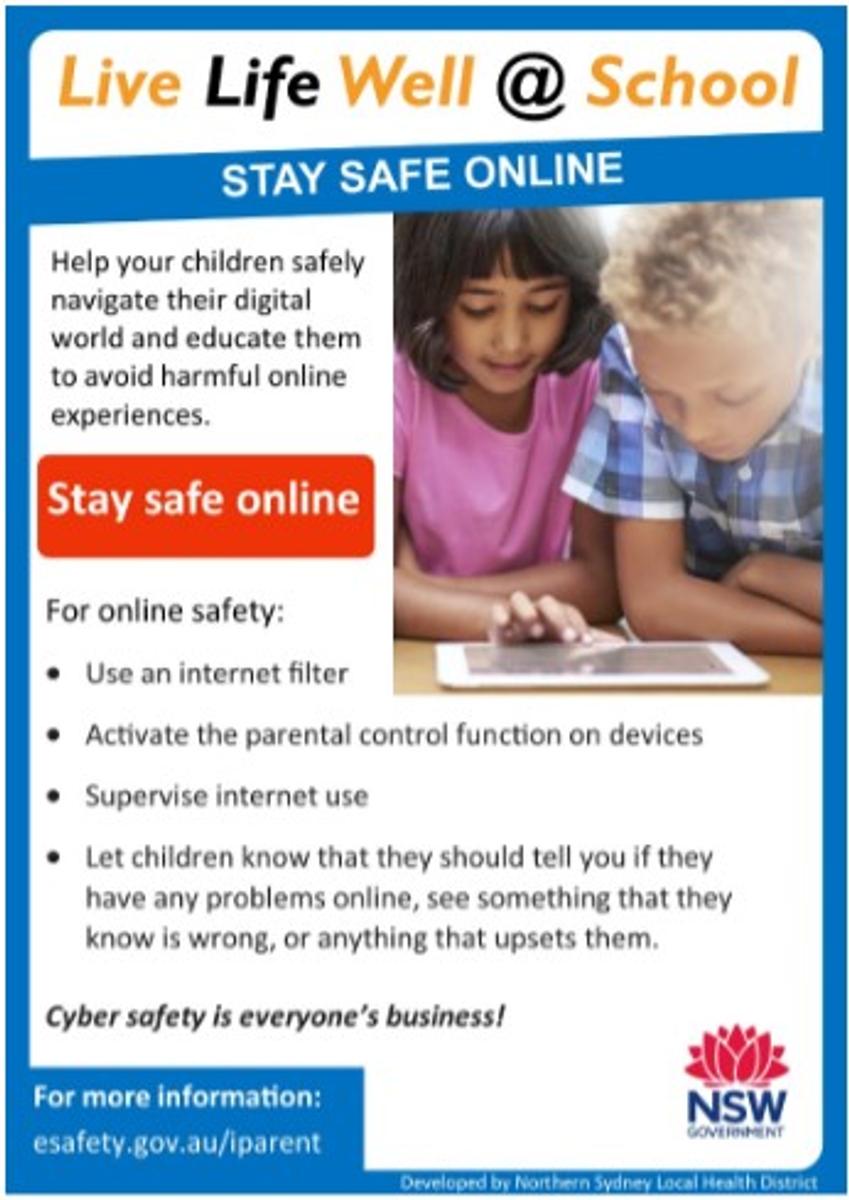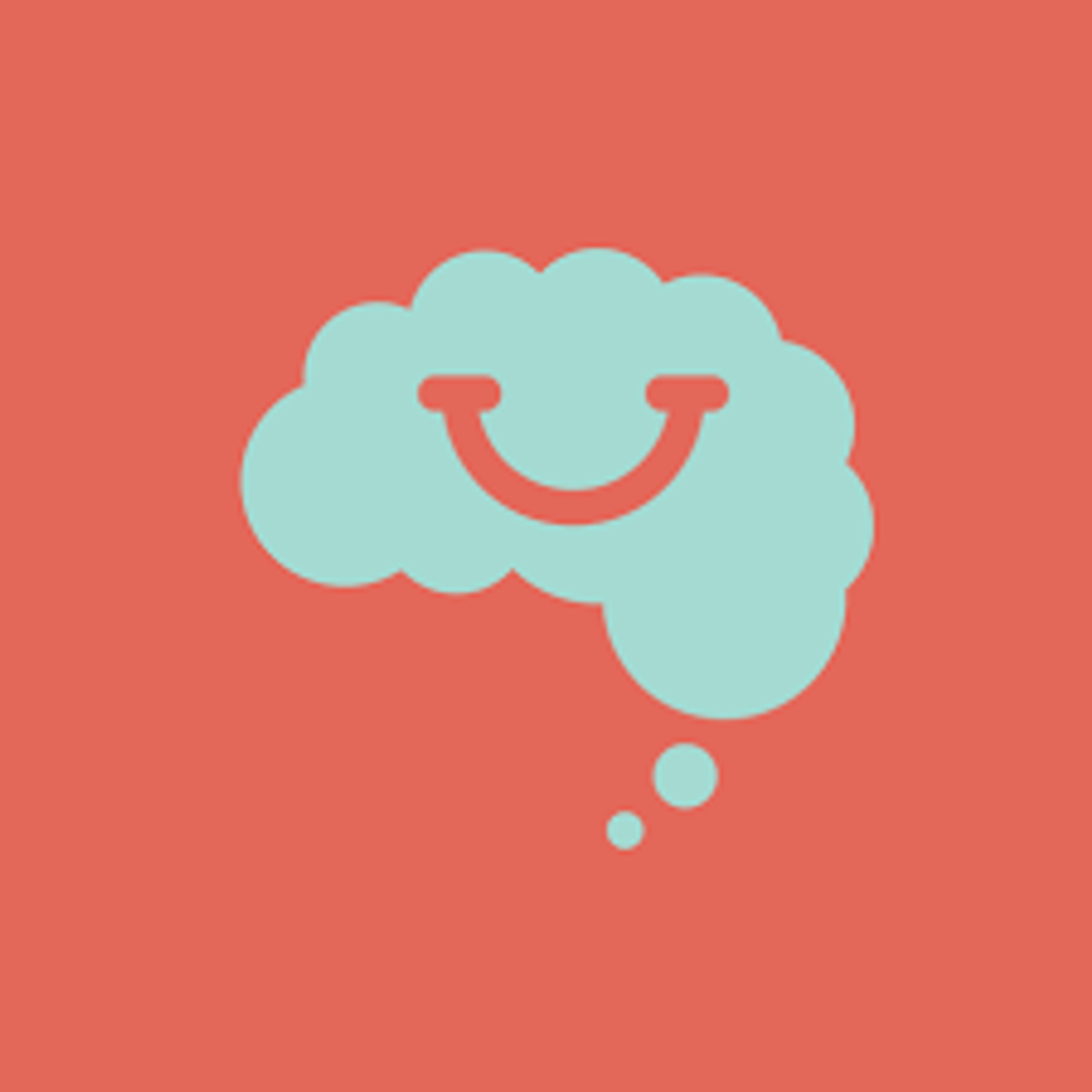Parenting Page

Illawarra Shoalhaven Local Health District - Live Life Well @ School
Wellbeing Strategies for Parents
by Michael Grose
The coronavirus pandemic and its associated disruptions are beginning to take a toll on our mental health and wellbeing. You don’t need to look far in your community or social networks to identify a worrying trend of people experiencing a range of challenging emotions including mood swings, despair, anger, sullenness and lack of motivation.
People who usually pride themselves on being able to manage most difficulties that come their way now find themselves suddenly unable to cope, leading to a profound sense of disappointment. A number of people have spoken about feeling guilty for being a less than perfect parent, partner, teacher, work colleague or friend during these times.
This inability to cope is understandable. Our capacity to adapt to acutely stressful situations such as natural disasters has been severely depleted by the long-term nature of the pandemic. It’s common in situations of great uncertainty to feel exhausted and experience periods of burnout. Coupled with this is a sense of loss that many people feel – loss of connection to friends and family, loss of freedom and a loss of a way of life.
There is no handbook for functioning in a pandemic however it’s apparent that we need to accept that our lives will be different for some time. It also helps to expect less of yourself, which is the opposite to how high-achievers and perfectionists ordinarily operate. Feeling comfortable with uncertainty takes some getting used to as most of us have an innate wish to feel in control.
Daily wellbeing treats
Self-care is a proven remedy to most wellbeing ailments, but it’s ironic that for many of us our self-care activities have been restricted by the coronavirus. Coffee with friends, a massage or a visit to the gym and other such activities are out for many people. However, this doesn’t mean that we should neglect our mental health and wellbeing. Instead we need to look closer to home for our regular wellbeing treats. Things that help include regular deep breathing to start the body’s relaxation response, practising moments of mindfulness to shut down mental chatter, finding hidden exercise opportunities to promote mood-enhancing endorphins and spending time each day in calm-inducing green space.
Resilience bank account
During my conversations one person described living in this era as “always feeling a little off balance, like standing in a dinghy in a rough sea and not knowing when the storm will pass.”
Our mental reserves are constantly been called upon, so it’s necessary to build regular practices into our lives that build our resilience. Hopefully, most of us had bulging resilience bank accounts before the pandemic hit but it’s never too late start. Attending to areas such as sleep, good nutrition, regular exercise, relationship-building and self-care help keep our resilience buckets filled up.
Humans are adaptive and can get better at anything with practice, including living through a once in a century pandemic and all the changes it brings to our lives.
Is your child OK?
How is your child going at the moment? In the busyness of life, perhaps still working from home due to COVID-19, and restrictions on many of your children's usual activities, some children may be struggling a little. Some of these apps might be useful for you in supporting your child's mental health.
Smiling Mind
Smiling Mind is a unique web and App-based program developed by a team of psychologists with expertise in youth and adolescent therapy, Mindfulness Meditation and web-based wellness programs. Smiling Mind is a free tool that will assist in improving the lives of young Australians, and is available online or as a smartphone App. Smiling Mind’s mission is to provide accessible, life long tools based on mindfulness meditation. Creating happier, healthier, and more compassionate young people.
Calm
Calm produces meditation products, including guided meditations, a book, narrated Sleep Stories, and health and meditation videos. Their primary product is the meditation app, available on iPhone and Android devices. The app aims to help users sleep better, boost confidence and reduce stress and anxiety, all with the help of guided meditations, soothing music, and bedtime stories.
How can you help your child recover after school?
Here are three essential things you can do to help your child with their learning and improve relationships.
- RELAXATION- give your child/ren time for relaxation. Plan some quiet time for recovery.
- SLEEP- make sure your child/ren are getting enough sleep. At least 10 hours is good. Good sleep improves your child's ability to retain memory and learning from the day. Watch this clip What Would Happen If You Didn't Sleep?
- EXERCISE - will help your chil/ren improve well being.
What can I do if my child is experiencing a problem at school?
by Michael Grose
Need Help with Devices and the Internet at Home?
The eSafety Commissioner website helps Australians to have safer, more positive experiences online. The site has a parent page that provides advice for parents and carers to help children have safe experiences online. eSafety Commissioner.
ADDITIONAL SHORT ARTICLES FROM 'PARENTING IDEAS'




